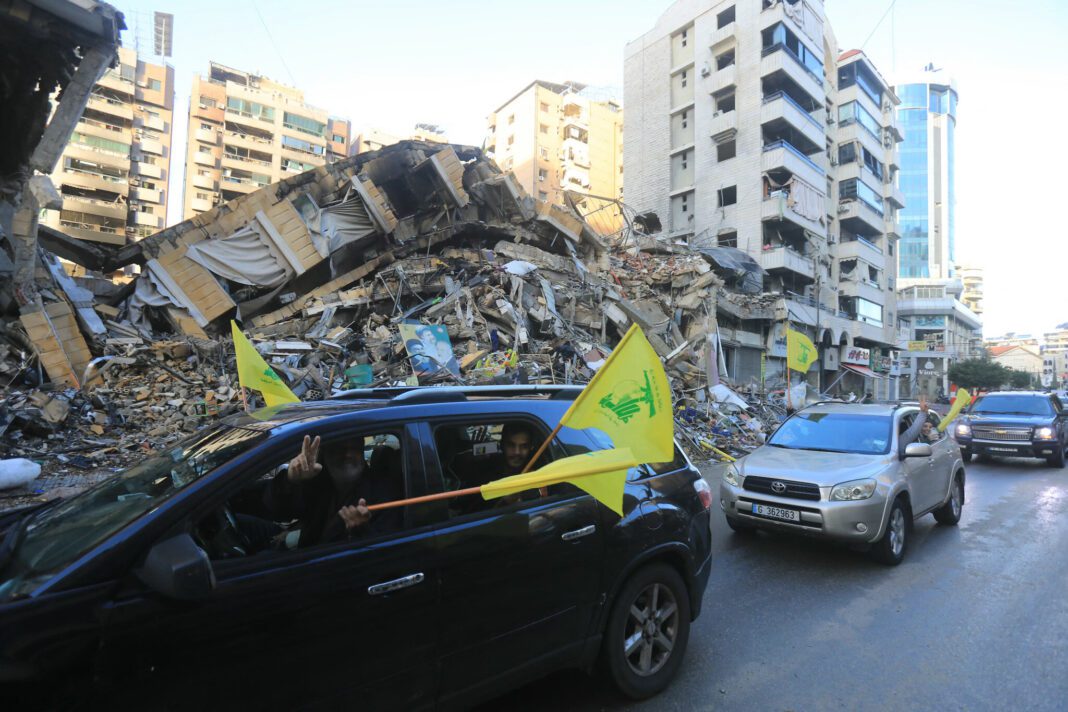The ceasefire between Israel and Hezbollah, brokered by the United States and France, marks a significant diplomatic breakthrough in Lebanon’s region, which has seen over a year of brutal conflict. The truce offers a glimmer of hope for peace, but the challenges of rebuilding and securing lasting stability remain daunting.
Lebanon’s Preparation for Stability
Lebanon’s army is taking steps to enforce the ceasefire and maintain peace in the southern region near the Israeli border. Troops are moving south to secure key areas, but the government has urged displaced residents not to return to their villages just yet. The presence of Israeli forces near the border makes it unsafe for civilians to come back. For now, the focus is on ensuring Israel’s gradual withdrawal and preventing any further clashes.
Although many families are eager to return, having been displaced for months, the destruction of their homes poses a major challenge. With villages heavily damaged and the cost of renting elsewhere high, families are desperate to return to their properties. However, safety remains a primary concern as they wait for assurances that the area is secure.
The Impact of Conflict
The conflict between Hezbollah and Israel has had devastating consequences for both sides. In Lebanon, villages and cities near the border were heavily bombed, leading to widespread destruction. Thousands of residents fled their homes, while many in Israel’s northern regions faced rocket attacks from Hezbollah, prompting mass evacuations. The ongoing destruction has left Lebanon’s southern region in ruins, and many families face an uncertain future.
For Hezbollah, the conflict has taken a toll on its military infrastructure. Israel claims significant victories, asserting that it has weakened Hezbollah’s leadership and military capabilities. Despite this, Hezbollah remains a powerful force in the region, and its ability to rebuild its military strength could have implications for the future.
A Strategic Shift for Israel
With the ceasefire in place, Israel now has an opportunity to focus on its southern front, particularly the ongoing conflict with Hamas in Gaza. Following deadly Hamas attacks in October 2023, Israel has committed to dismantling the group. The pause in hostilities with Hezbollah gives the Israeli military time to replenish its resources and refocus its efforts on Gaza, where the humanitarian situation continues to worsen.
Israel’s military has touted its success against Hezbollah, claiming that the group is now much weaker than at the outset of the conflict. Despite these assertions, the situation remains volatile, with the future of Hezbollah’s operations uncertain.
Humanitarian Crisis Persists
Despite the ceasefire between Israel and Hezbollah, the humanitarian crisis in both Lebanon and Gaza continues to escalate. In Lebanon, displaced families face immense challenges. Many cannot return to their homes due to widespread destruction, and those who have returned struggle with the lack of essential services. The cost of living, particularly rent, is another burden for many families.
Meanwhile, Gaza remains in a state of extreme distress. Millions of people are in desperate need of food, shelter, and medical assistance. The ongoing conflict in Gaza has created an overwhelming humanitarian crisis, with international efforts to broker a ceasefire so far failing to provide relief. Neighboring countries, particularly Egypt, continue to push for peace in Gaza, but the situation remains dire.
Hope for Long-Term Peace
While the ceasefire represents a step toward peace, the road ahead is uncertain. Israel plans to gradually withdraw its forces from southern Lebanon, with Lebanon’s army set to take full control of the area. This transition is crucial for maintaining peace, but tensions remain high. The focus now shifts to Gaza, where the international community is hoping for a similar breakthrough.
The ceasefire between Israel and Hezbollah serves as a reminder that even in times of intense conflict, diplomatic dialogue can offer hope for peace. However, the journey toward long-term stability will require continued cooperation, patience, and efforts to address the broader humanitarian needs in the region. As both Israel and Lebanon work toward rebuilding, the challenges remain substantial, and lasting peace will depend on the willingness of all parties to maintain dialogue and compromise.

